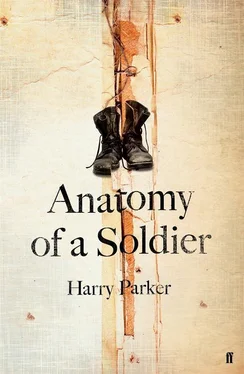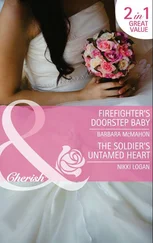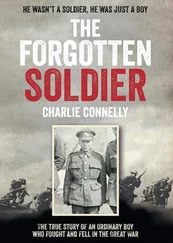The new team wheeled you out through a blue corridor, towards double doors. They were urgent and professional and cared only about the next ten hours: making sure they could get you to safety and hand you over to another team that could do more than just keep you alive.
We left the air-conditioned building and were wheeled to an ambulance through the desert dusk. We drove for a few minutes and the nurse next to us monitored the machines and checked your levels. When we stopped the rear doors opened and we were pulled out below the bright rectangular opening of an aircraft. Its engines whistled and lights pulsed on each wing. The air was buffeted by the warming jets and moved the fine hair on your forehead. They pushed us up the ramp into the rear of the fuselage and secured your bed to anchor points on the floor.
Other stretchers came and were strapped down. Then men on crutches, or with bandaged arms or a dressing over an eye, boarded the aircraft and were helped by medics into seats near the front. The whine of the engines was muted as the rear door lifted shut. The transit team moved between the beds checking the sedation and outputs were acceptable. The aircraft taxied and took off.
You travelled four thousand miles but didn’t need to think and I was part of a system of tubes, valves, pressure gauges and screens, powered by microchips and overseen by people who supported your life.
The aircraft landed and the rear door lowered.
The tarmac was wet and streaked with vertical reflections; some flashed blue and red from a line of vehicles that waited. It was much colder. Fluorescent jackets glowed as people ran across to the rear door. The wheels of the stretcher skittered on the ground as the team jogged with us to the back of an ambulance. The falling rain was foreshortened to white rods against the stone sky. They pulled us into the ambulance and doors were closed.
Blue flashed through the window as we drove. Soon the vehicle slowed and started to turn corners, yellow streetlights now in the window. The siren changed pace and tone and we swayed from side to side and then accelerated again.
The siren was switched off and we stopped. Doors opened and banged shut. There was a shout and then we were pulled out and the stretcher’s wheels dropped down below us and we were taken into a new building, through glass doors that slid apart automatically, and down cream corridors with safety notices and lists of departments. As we were pushed on the lists changed but we always headed for the intensive care unit, swinging around corners until a man tapped a code into a pad and frosted glass doors, imprinted with ICU , opened. We stopped alongside a bed.
The reception party was waiting there and they plugged you into a new set of pipes, wires and tubes. Machines blinked on and displayed your output and I was pressed into a new ventilator.
And then the air support team walked away from us. They looked tired. One put his arm around another and smiled as they left through the sliding doors.
*
They decided to operate and we were taken into a theatre with white tiled walls. They opened the dressings and dirt and stones fell out of your wounds onto the table. They debrided your flesh, pulling away the dead and dying parts that we could not sustain. They cleaned up infected areas and sent bloods away. Plastic surgeons made assessments and worked on you.
After four hours they wheeled us back to the ICU. Nurses cleaned you again. Your skin had yellowed and your head rested at an unnatural angle.
Once the nurses were happy, the glass doors opened and a doctor brought in a man and a woman who were not wearing medical clothing. They were ushered across the ward until they stood next to our bed. The man looked down at us with determination. The woman clutched a red handbag and looked drained and shocked. The man’s arm held her firmly to his side and he pressed her tighter. The doctor started to talk about you and introduced them to the team who looked after you.
They stayed for a long time — saying little — but the doctor came back and told them they should really get some sleep. We were left alone.
They returned many times and sat by you and waited. The woman would steal a chance to touch your hand when no one was looking, worried she was doing something that was wrong or might damage you. Often they would watch us being wheeled away to the operating room. They felt helpless. They were always there when we came back.
*
Seven days and four thousand miles after I had been inserted into you, you changed. They weren’t expecting it but your eyes flickered and your tongue started to push against me as you gagged around my pipe. You tried to force me out and were afraid you were drowning. The nurses hurried over as your heart rushed in sudden panic and the machines above alarmed.
Doctors were called in to examine you. My balloon cuff was deflated and they gently pulled me out of you. You were mumbling and confused as I passed your teeth. I was left on a table and the man and woman were brought back in to be with you. She held your hand.
You recognised her and your relationship to them both.
A nurse picked me up, pushed the foot pedal of a bin and threw me into a yellow surgical waste bag.
I was no longer part of you.
I am an olive-green thirty-litre day-sack. BA5799 bought me from a surplus store in a garrison town while he was still in training. During my first exercise he tried to get me dirty so I no longer looked new but battered and experienced — not how he felt but how he wished he did.
He packed me countless times with radios, blank and live ammunition, warm clothes and bladders of water, with rations that he pushed down my sides. Everything had a place and was individually waterproofed. He used me as a seat on cold wet training areas. He crawled up streams and fired his rifle into trenches and men pretended to be dead.
He stuffed me with metal weights that were wrapped in towels and ran out over the hills as I slapped up and down against his back.
He wrote his number on me in black ink that faded as we waited to be deployed. Again, I was on cold wet training areas and he attacked positions on small grassy hillocks while people in red raincoats walked past with their dogs. He was killed and wounded a number of times and joked with the other men as he was carried through the casualty evacuation chain. He drank tea until exercise control told him he was alive again. Once a man in a luminous vest shouted, ‘You’re dead, sir.’ He was annoyed to be out of the game so early and threw me down in the gorse in frustration.
We spent more time training. And then his room started to fill with new equipment and he named it all with a marker and laid it out across the floor. He redrew BA5799 over the faded black lines on me.
One morning he put into my top pocket things that could take his mind off what was ahead: a book, his iPod, along with his documents and passport. He dropped his dog tags over his head and folded a beret, pushed it in and zipped me closed. We left the camp on a bus while it was still dark and boarded a plane.
*
When the plane landed we were part of a single file of men, all carrying day-sacks, that extended down the steps onto a wide apron. It was hot and his shirt soon dampened next to me. We walked through a city built on a grid with prefabricated windowless buildings and tents, refuelling dumps and blast protection walls, dog cages and fire points. Heavy vehicles rumbled past and small groups of soldiers strolled back to their accommodation, their uniforms sun-bleached and their hair long.
We were ushered into a hangar filled with bunk beds. Instructions were shouted and everyone filed down the rows to find a bed. The high ceiling hummed with the noise of three hundred people. BA5799 chose a bed and slept.
Читать дальше












